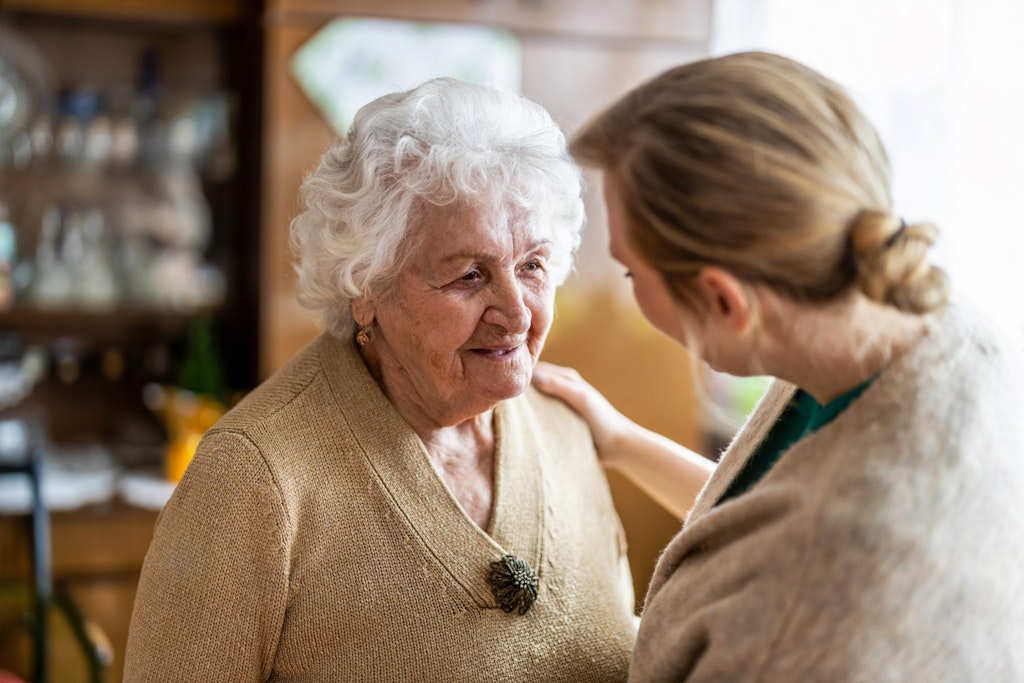Home care providers are a key element in protecting older women from violence
Last updated on 15 December 2022

SPONSORED – The conversation around sexual assault against older people has become stronger under the #ReadyToListen campaign, and aged care advocacy group Aged & Disability Advocacy Australia (ADA Australia) believes home care providers play a key part in protecting older clients from sexual abuse.
Home care and community service providers are often on the front line in older people’s homes every day, which is where home support workers can become critical key supports for these clients.
Only last week, the Charter of Sexual Rights in Residential Aged Care was launched at a #ReadyToListen town hall meeting, and aged care advocates believe that these teachings need to be extended and made easily accessible to the home and community sector.
Providers can access a range of information, resources and supports through a recent webinar of the #ReadyToListen campaign, to assist with reducing and preventing sexual assault against older women in their homes.
Catherine Barrett, #ReadyToListen Project Leader and Director of Celebrate Ageing, said this webinar provides critical information and practical strategies that can be passed on to home care provider staff.
She explained that the most important thing when it comes to preventing and reducing sexual assault is leadership – no matter if it is in residential aged care or in home care.
If home care providers show strength in addressing sexual assault against older people, through education and training of staff, it will help reduce the problem.
“We know that people in their own homes are experiencing family violence and sexual assault. It might be by service providers, but it’s more likely to be by their intimate partners and other family members,” said Ms Barrett.
“We know from previous research that carers who have education can be aware of some of those warning signs and be able to open up conversations safely so sexual assault can be disclosed if they want to and then be given information about services and support choices available.
“That’s why it matters that we educate home care workers.”
Older women face a lot of barriers reporting sexual assault, explains Ms Barrett, as they often have grown up in a culture where women felt a sexual obligation towards their partner due to marital entitlements.
Additionally, some cases of changed behaviours of dementia in a partner could manifest in a way that is unlike the normal, respectful relationship a couple has shared all their lives – such as hyper-sexuality, sexual disinhibition or lacking the understanding of consent.
Home care providers need to recognise the vulnerabilities of older clients, including if they live in a rural community, dependency, and fewer options for housing, gender inequalities, and ageism, so that they can identify any signs or warning markers of sexual abuse.
Strategies provided within the available #ReadyToListen webinar to assist in responding to survivors include:
- Listening and giving the older person permission to speak
- Building a relationship and trust
- Giving choices – leaving is not the only option
- Understanding local support services – building relationships with police, family or sexual violence services for secondary consultation and referrals
Ms Barrett recommends that home care providers should take all the steps necessary to understand and protect their older clients against abuse.
“If you’re a home care worker and you are visiting someone who may be really weepy or whose partner won’t let them be alone with the worker, they can be some of the signs workers should be trained to pick up on,” said Ms Barrett.
“They also need to know what to do when they suspect there is sexual assault or family violence happening to a client.”
The #ReadyToListen webinar recording can provide that vital information to providers to make a difference and train their staff in critical sexual abuse support and prevention.
For more information about the webinar and to access the recording, head to the ADA Australia website.
The #ReadyToListen webinar for home care providers was funded through the Queensland Government’s Investing in Queensland Women program.